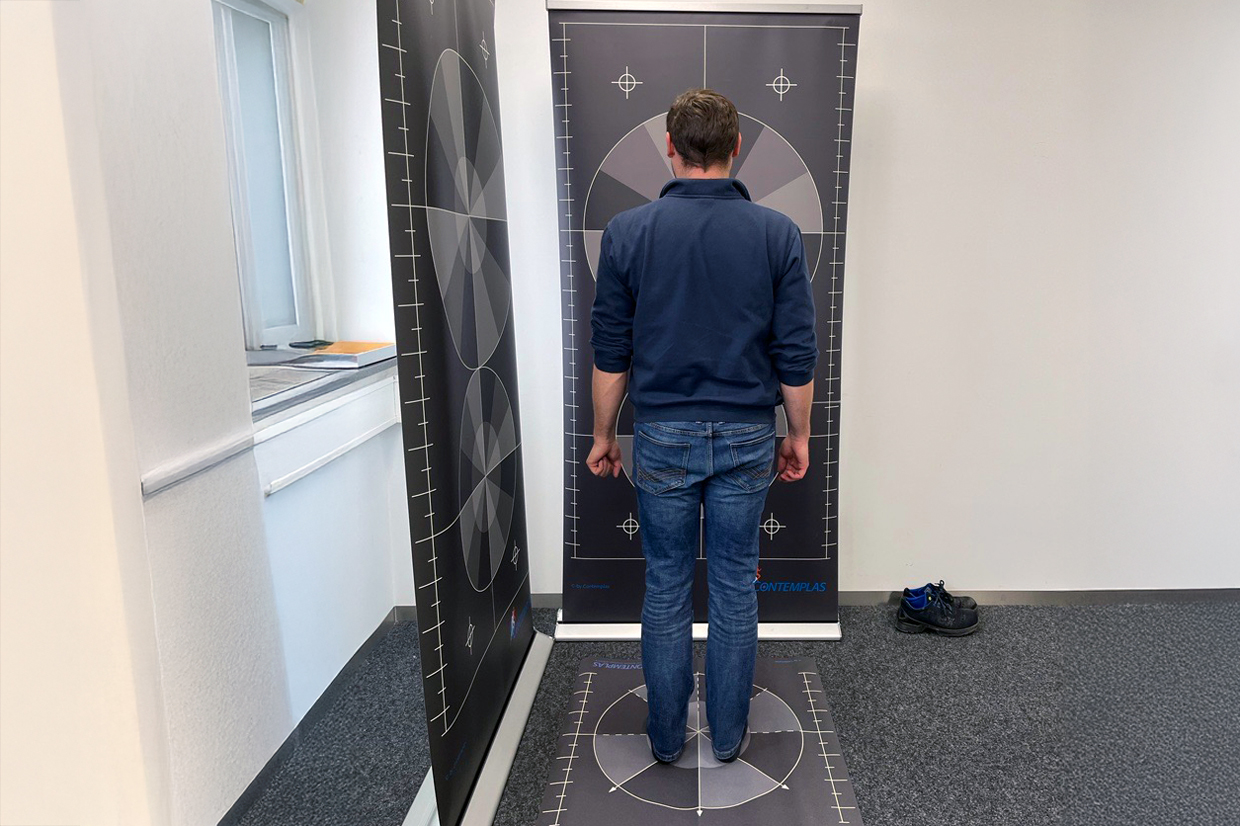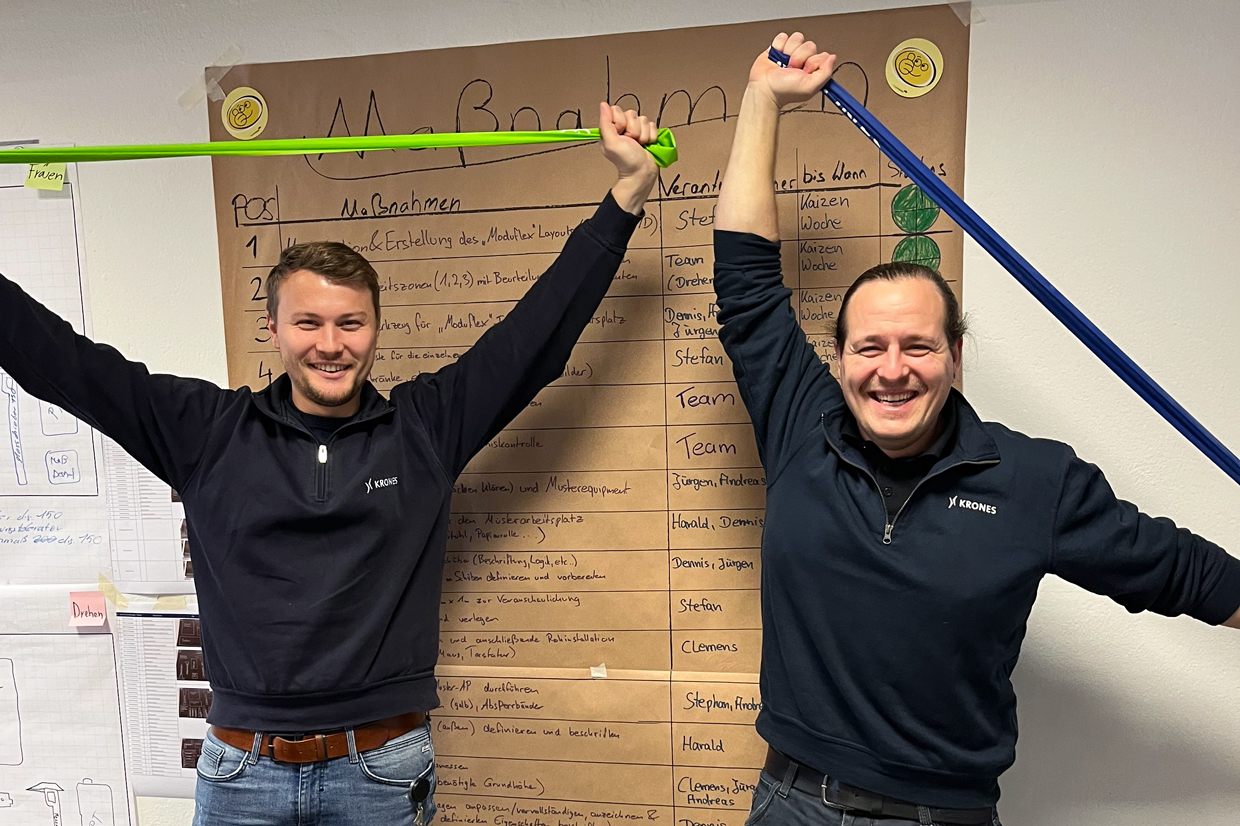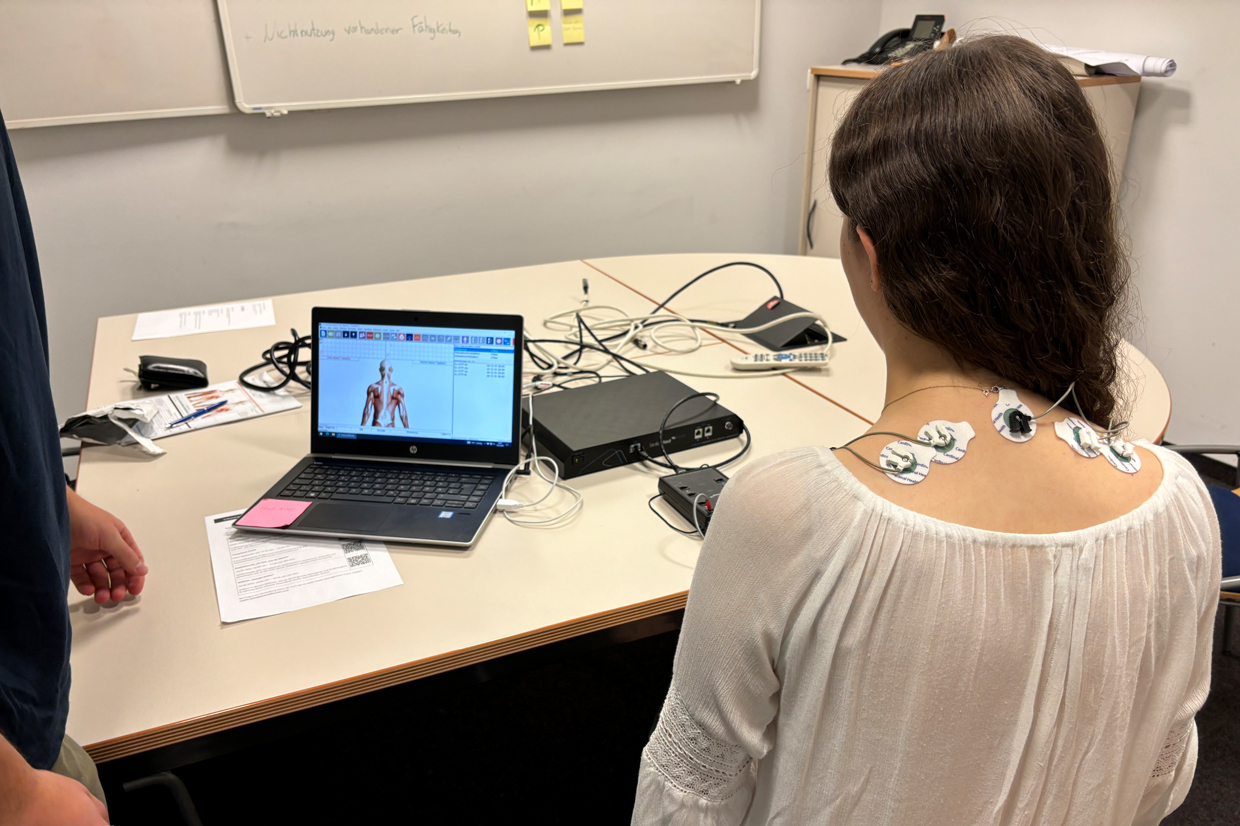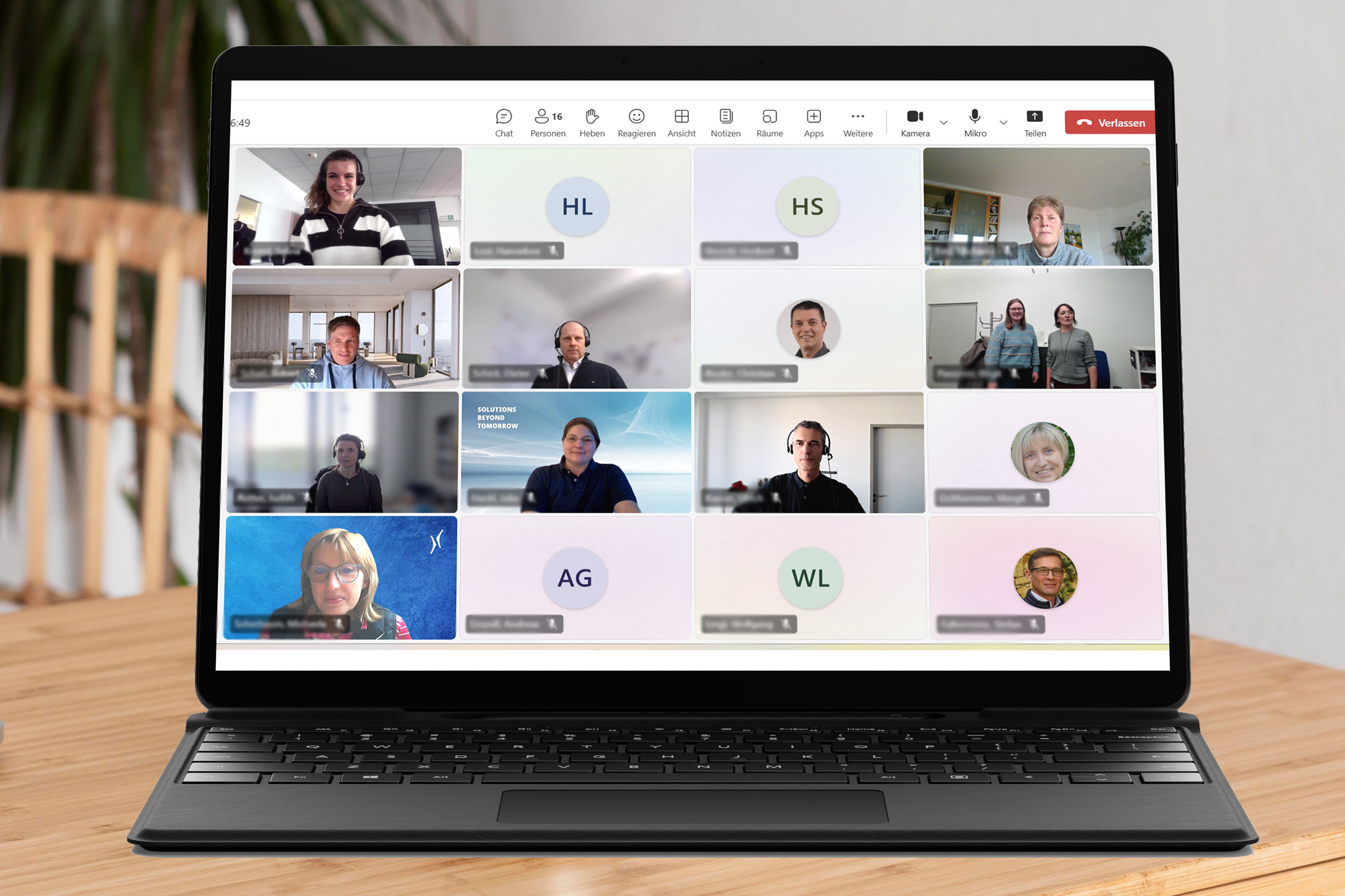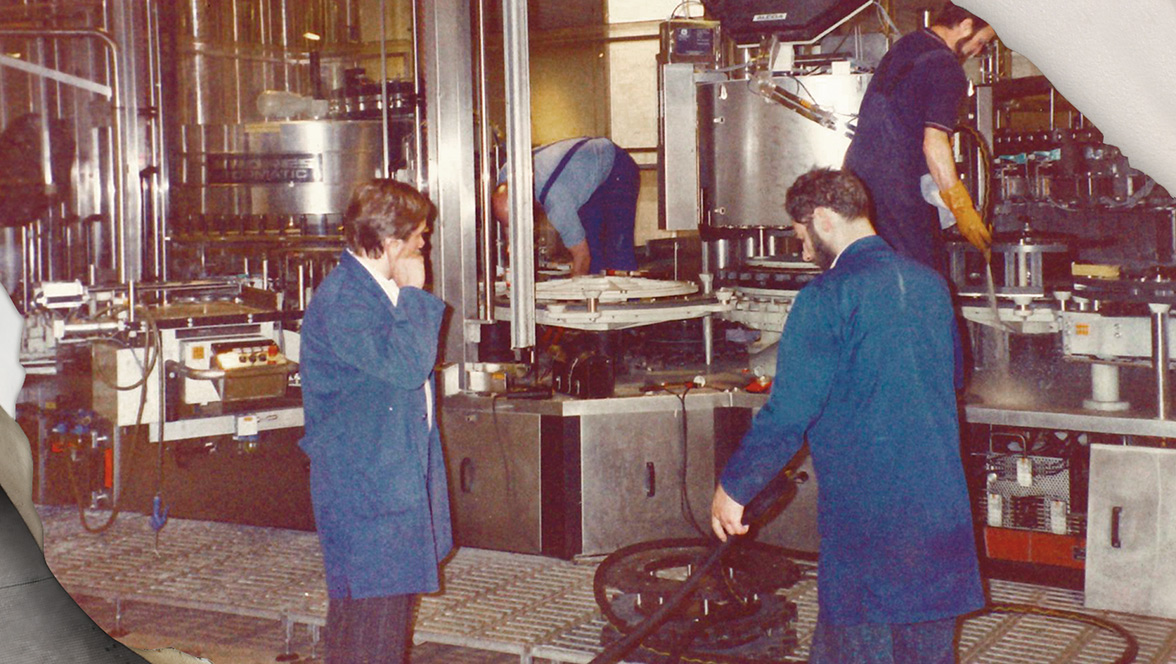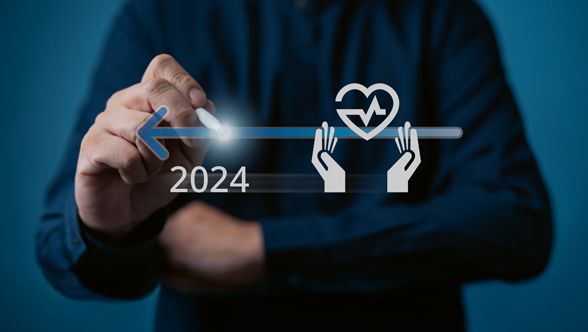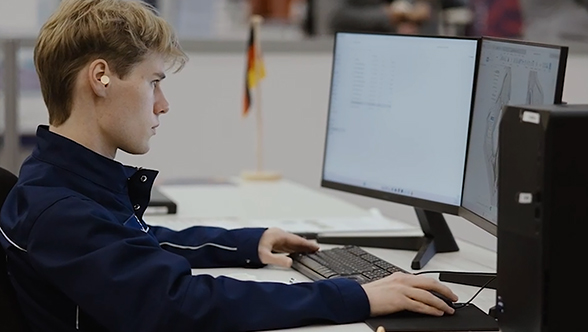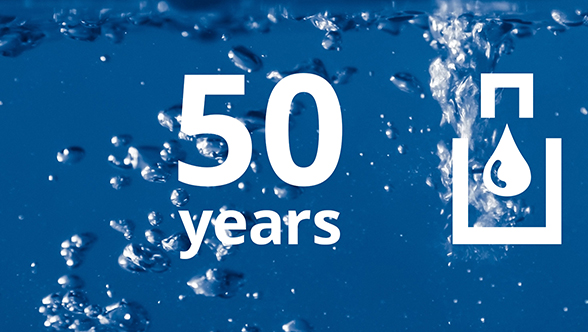How was I able to get through my workload today? How would I rate my subjective well-being today? How well do I cope with not meeting my senior manager in person? Be honest now: Has your employer ever asked you questions like these? “Yes, sure!” is the answer now given by all Krones employees in Neutraubling, Nittenau, Rosenheim and Flensburg. That is because starting three and a half years ago the company’s health management team has been conducting a survey among all staff members at these four facilities, which was centred around mental well-being in the workplace – anonymised, of course! The reason prompting them to take this step is what is called “Mental health risk assessment” (in German abbreviated to GBpsych) that every company in Germany has been required to conduct since 2014 (see box for details).
“Mental health risk assessment” (in German abbreviated to GBpsych) is one of the stipulations laid down in the German Occupational Health and Safety Act (in German abbreviated to ArbSchG) and has since 2014 been mandatory for all companies in Germany. The health management team at Krones not only meets this obligation, they do a lot more than required. And that is well worthwhile not only for Krones but first and foremost for the roughly 10,500 people employed in the group’s four German facilities.
GBpsych – What’s behind it?
Small supplement with a big impact: In late 2013, an additional stipulation was appended to Paragraph 5 of the German Occupational Health and Safety Act, which addresses the assessment of working conditions. Potential sources of risk at the workplace have since then included psychological stress as Item 6. But the paragraph not only lists potential hazards, it also obligates employers to assess these in order to develop protective measures for their staff. So it has since 2014 been mandatory for companies in Germany to conduct a mental health risk assessment.
However, it was by no means a matter of course that Krones meets its legal obligation by conducting a survey among roughly 10,500 people, as Saskia Venus, a member in Krones’ health management team, explains: “In actual fact, the law doesn’t state any specifics on what such an assessment should look like. So it would also be sufficient to only perform surveys among senior managers or hold interviews with selected members of staff.” And Krones started by carrying out such random analyses but soon found that these had a weak point. To quote Saskia Venus: “You see, random analyses only reflect the opinions and situations of a small part of the workforce – and that was not enough for us. So at one point in time we deliberately decided to include each and every member of Krones’ workforce in Germany in the survey.”
That is because mental stress is a sensitive but at the same time highly complex issue. It is often difficult for people to talk openly about their own mental health even in their private environment. And yet that would be vital because the consequences of mental stress are of course reflected in their everyday lives, in reduced performance at work, for example, or absenteeism caused by mental health conditions. “That is why Krones, as an employer, bears a great responsibility but can also get things moving in order to eliminate any shortcomings and contributes towards creating a positive working atmosphere for its staff,” says Saskia Venus.
Survey via smartphone and similar
It goes without saying that such a project crucially depends on the staff’s readiness to participate. In order to reach as many people as possible, the team therefore decided to conduct the survey digitally. All staff members were able to use their personal mobile devices for accessing the survey. In addition to their answers, only the higher-order division was recorded, thus ensuring anonymity.
The topics covered in the survey included some rather general questions about workload and range of responsibilities, communication, organisation and subjective well-being, plus more Krones-specific subjects like distance leadership and – depending on the task category involved – cooperation in virtual teams, and also shift work. If a particular question was only given six out of a possible ten points (or even less), it was followed up by more probing questions in order to get to the core of the problem.
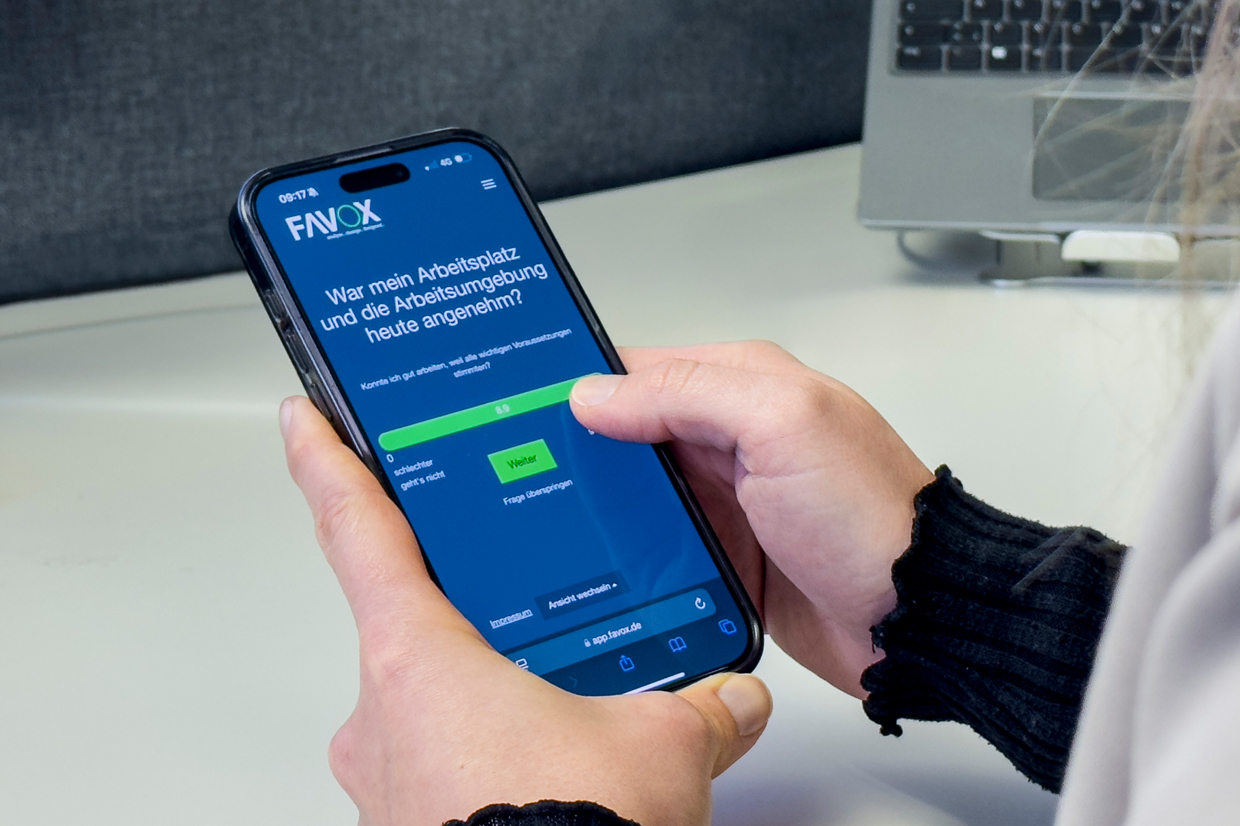
The health management team then processed the data collected. The plants in Rosenheim, Nittenau and Flensburg are already implementing the measures derived from the survey results. The data collected in Neutraubling will be evaluated in spring 2025. Based on the insights gained, the health management team also advises senior managers on the issues to be prioritised and on the appropriate measures. The working motto for all of this is “Building a healthy workplace together”.
Employees are offered more than 50 options
But what does “Together” look like in actual practice? Here are a few examples: Senior managers in whose areas special action needs to be taken can opt for one-to-one consultation meetings with the health management team. In addition, properly targeted, detailed analyses are carried out with the managers and employees in these areas. “That is because if a problem has dragged on for a while, those directly affected will certainly have some ideas on how it can be solved,” explains Saskia Venus. “So instead of developing a theoretical solution, we aim to take a practical approach, in this way creating better targeted options.”
Now that three of the surveys have already been completed, Krones has not only accumulated a great deal of insights into the staff’s well-being at work but has also developed over 50 options, aimed at either senior managers, individual employees or entire teams, for improving their mental situation. It is not just Krones, however, that can reap benefit from the insights gained. Once the survey has been completed, the employees themselves also get their own personal analysis, which enables each of them to work on precisely the areas where special action is needed.
“With Krones I live a good life”
But why does Krones go to all this length when far less is deemed sufficient by law? “One of the core messages in our employer branding campaign is “At Krones, my well-being matters”. And we, the health management team, follow precisely that maxim because well balanced, satisfied employees are much more motivated and have fun with what they’re doing. And that directly translates into commitment to perform and higher levels of productivity,” is how Saskia Venus sums up the advantages.
That is why Krones, as an employer, bears a great responsibility but can also get things moving in order to eliminate any shortcomings and contribute towards creating a positive working atmosphere for its staff.
 Saskia Venusfrom Health Management team at Krones
Saskia Venusfrom Health Management team at Krones

